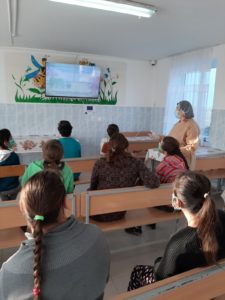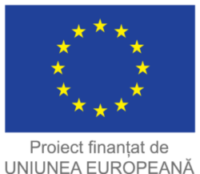March 31, 2021. Keystone Moldova with the financial support of European Union implemented a seven months project focused on improving safeguarding environment for persons with intellectual and psiho-social disabilities and staff from residential institutions for better protection against COVID-19. The total cost of the project was 60,000 EUR.

“The Project was developed based on needs, and had a comprehensive approach, covering development of internal safeguarding policy for emergency situations, like COVID-19; capacity building of persons with disabilities and staff on protection measures against COVID-19; and ensuring both: residents and staff with protective equipment”, – said Ludmila Malcoci, Keystone Moldova Executive Director. “By developing policies, local capacities, and increasing awareness Keystone Moldova ensured the sustainability of the Action”.
Thanks to European Union rapid response and support, 1700 persons with intellectual and psiho-social disabilities and 500 staff received and are benefiting of various protective equipment against COVID-19, like masks (33,000 units), gloves (33,000 units), protective goggles (1400 units), face visors (2000 units), disinfectant (250 bottles of 5 l. each), disposable gowns (6000 units) and protective footwear (3000 units). Additionally to what was included in proposal, special visor masks were offered for 2000 people with hearing impairments, including children, to provide them protection, as well as barrier-free communication.
“The donated protective equipment helped us to prevent and control the spread of the virus in our institution. Not so long ago, a person with disabilities was infected with the virus and we have taken all preventive measures and managed to keep safe all the other persons from institution” (institution employee).

17 staff from residential institutions were capacitated as trainers in safeguarding policy against COVID-19 and delivered the training under Keystone mentorship to other 450 staff, ensuring the implementation of the developed safeguarding internal policy in all six residential institutions. Afterwards the staff delivered information to all residents in institutions. 62 employees increased their knowledge on burnout syndrome prevention and stress management, to meet the challenges related to people with intellectual and psychosocial disabilities behaviors in crisis time.
“People with disabilities are among the hardest hit by the COVID-19 pandemic. This is why the EU decided to support communication campaigns to raise awareness and to provide personal protective equipment for the persons with intellectual and psychosocial disabilities and staff of six residential institutions from the Republic of Moldova. This project confirms once again that social inclusion, safety and the rights of people with disabilities are a priority for the European Union” – said Mrs Magdalena Mueller-Uri, Head of Operations, European Union Delegation in the Republic of Moldova.
To increase the access to information of persons with disabilities and staff, 6 monitors linked to computers were installed in all 6 residential institutions. The brochures, video spots on how to prevent the infection with COVID-19 were translated in easy to read language and are broadcasted daily in institutions. “In the videos they say that we need to wash our hands, to keep distance, to wear masks… We try to do all these things” (person with disabilities from institution). The video equipment was used also for distance training of the staff and residents.
40 self-advocates from residential institutions were capacitated on how to support their peers to address the complaints if any to Hotline service and received 40 mobile phones as a technical support. “We know that we need to call to Hotline Service when our rights are violated. The consultants will help us to solve our problems”.
The project “Ensuring safety and human rights of persons with intellectual and psychosocial disabilities in 6 residential institutions during the COVID-19 pandemic” was implemented by Keystone Moldova and funded by the European Union from the EU Rapid Response Mechanism to urgent needs of civil society in the Eastern Partnership.




